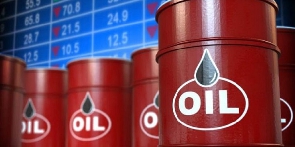 Nigeria plans to almost triple energy prices within weeks
Nigeria plans to almost triple energy prices within weeks
Nigeria plans to almost triple energy prices within weeks, people in the presidency with knowledge of the matter said, in a bid to attract new investment and slash about $2.3 billion spent to cap tariffs.
Power companies will be allowed to raise prices to 200 naira ($0.15) per kilowatt-hour from 68 naira for urban consumers this month, according to people who asked not to be identified because they aren’t authorized to speak on the matter. These customers represent 15% of the population that the government says consume 40% of the nation’s electricity, the people said.
Nigeria’s economy has been hobbled by the lack of power supply while an increasing subsidy burden has weighed on government finances, diverting capital from building roads and spending on health care. With the latest move, President Bola Tinubu wants to cut down on price distortions, which haven’t ended despite breaking the state-owned power firm into 11 distribution companies and six generation firms and selling them to investors.
“The regulator will make any pronouncements based on its discussion with the distribution and generating companies. The presidency cannot say anything at this stage,” Bayo Onanuga, a spokesman for the presidency said, adding that the “electricity sector is hurting.”
The move to raise the tariff follows pressure from Nigeria’s debt-burdened electricity distribution companies that want to charge a cost-reflective price to improve their finances, the people said.
While the country privatized generation and distribution in 2013, tariffs are set by the Nigeria Electricity Regulatory Commission, a government-controlled body. Power firms aren’t allowed to charge enough to recover the cost of distributing electricity, with the government paying the difference as a subsidy to companies in the sector.
The government has in the past said that electricity companies are short of an estimated 2 trillion naira in capital and need new investors to revive the industry.
The move will also help reduce government spending as it will now only subsidize the poor in rural areas. The intervention gulped around 120 billion naira monthly, before authorities devalued the currency at the end of January.
Last month, the International Monetary Fund warned that the capping of fuel pump prices and electricity tariffs below cost recovery could have a fiscal cost of as much as 3% of Nigeria’s gross domestic product in 2024.
Nigeria suffers from power blackouts as its more than 200 million people rely on grid electricity of less than 4,000 megawatts from an installed capacity of 13,000 megawatts despite an abundance of gas and hydro capabilities. In contrast, South Africa — with a population that’s almost a third the size of Nigeria’s — has about 52,000 megawatts of capacity.
On Monday, the Nigerian Midstream and Downstream Petroleum Regulatory Authority increased the price of natural gas which is used to generate more than 70% of electricity in Nigeria. Power companies will now have to pay $2.42 per one million British thermal units from the previous rate of $2.18 MMBtu.
In his new year’s speech, Tinubu promised to fix the power supply that has been bedeviled by patchy revenue collection and a dilapidated national grid that has left most residents to produce their own electricity using noisy generators.
Both increases will likely weigh on an already constrained consumer and hamper the central bank’s efforts to rein in inflation in the West African country, where about 40% of the population live in extreme poverty. The monetary policy committee has raised its benchmark interest rate by 1,325 basis points since May 2022 to a record 24.75%%. Price-growth accelerated to a near 28-year high of 31.7% in March.